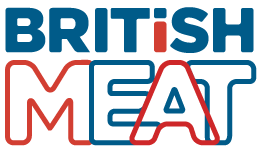Standards
Full alignment on food standards essential for the whole of the UK
Since the UK voted to leave the EU, the BMPA and BMPA members have been working hard to ensure our industry’s priorities are heard.
As we know, the post-Brexit regimes for labour supply, food standards, trade and agricultural policy are not just critical to the British meat processing industry, worth £8.2bn a year to the UK economy. They are also crucial for our customers – and getting these issues wrong will cause harm to consumers and the wider economy.
As the voice of the British meat industry, we have always expressed a strong desire to work constructively with politicians to help get the best outcome for our members and the country. We need to ensure the British meat sector remains competitive, continues to operate to high standards and gives the country a long-term sustainable spply of food at an affordable price.
After Brexit, the UK has real opportunities to strike ambitious new trade deals and grow exports of great British food all over the world.
After Brexit, the UK has real opportunities to strike ambitious new trade deals and grow exports of great British food all over the world. At the same time, we need a trading relationship with our nearest neighbours that reflects the realities of trade in meat products.
The recent announcement guaranteeing that there will be “no hard border” between Northern Ireland and the Republic is a welcome step. Regulatory alignment is important in having a frictionless border as possible something that we have been lobbying hard for along with the rest of the food industry. However, in the coming weeks, our industry and others will need clarity on what “full alignment” of regulations means and how this will affect future trade and production of food.
Moreover, we want to see regulatory alignment for the whole of the UK with the rest of the EU in areas such as food standards and hygiene. It is in the interests of the meat sector and consumers to keep agri-food regulations between the UK and the EU aligned. Between 75% – 90% of trade for our beef, pig and sheep meat is with EU countries. The ability of high-quality produce to move seamlessly between the UK and the rest of the EU is essential to both the viability of the UK meat industry and meeting customer demand.
We will continue to make the case to politicians in the coming weeks and throughout the Brexit process.
